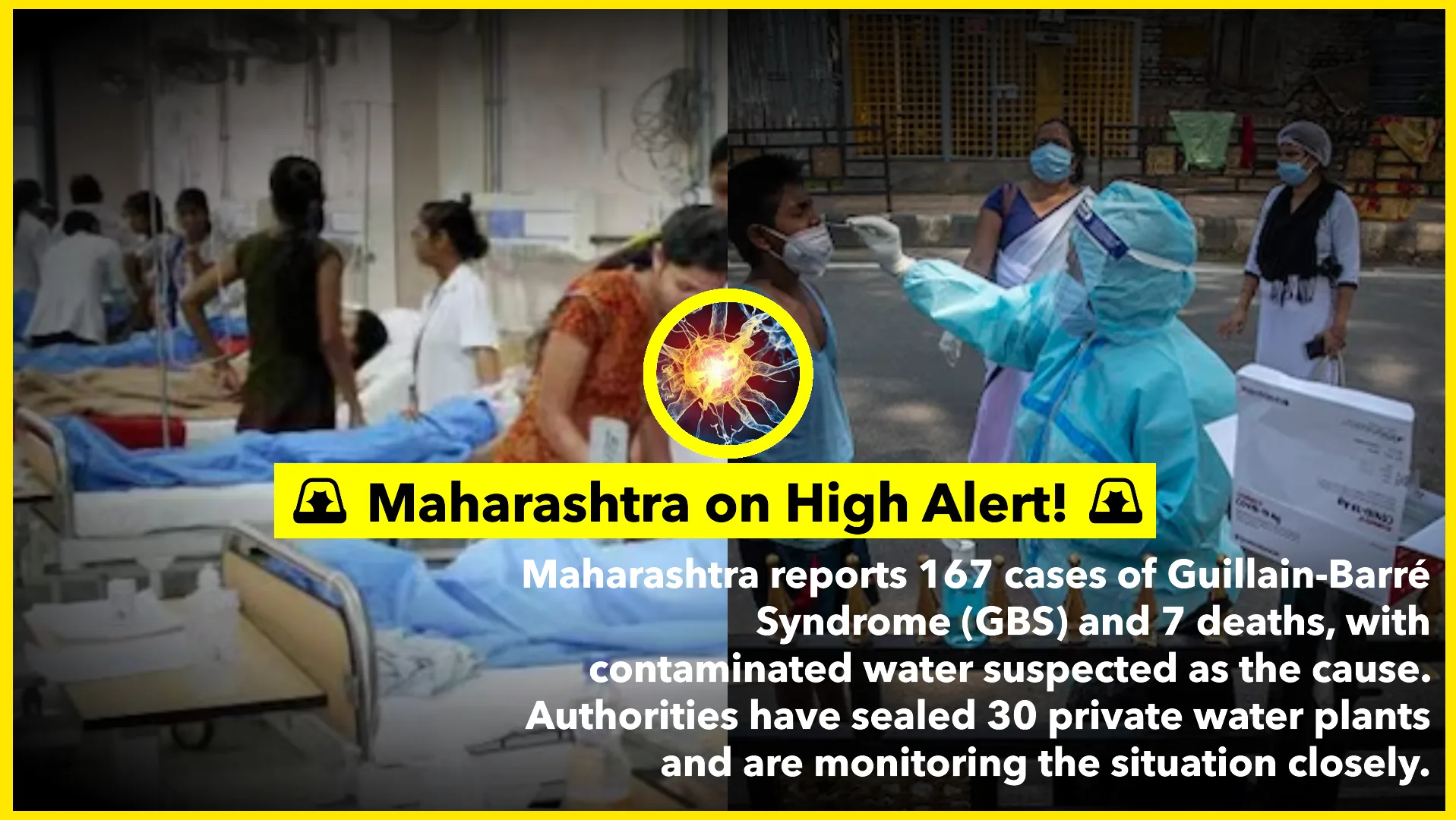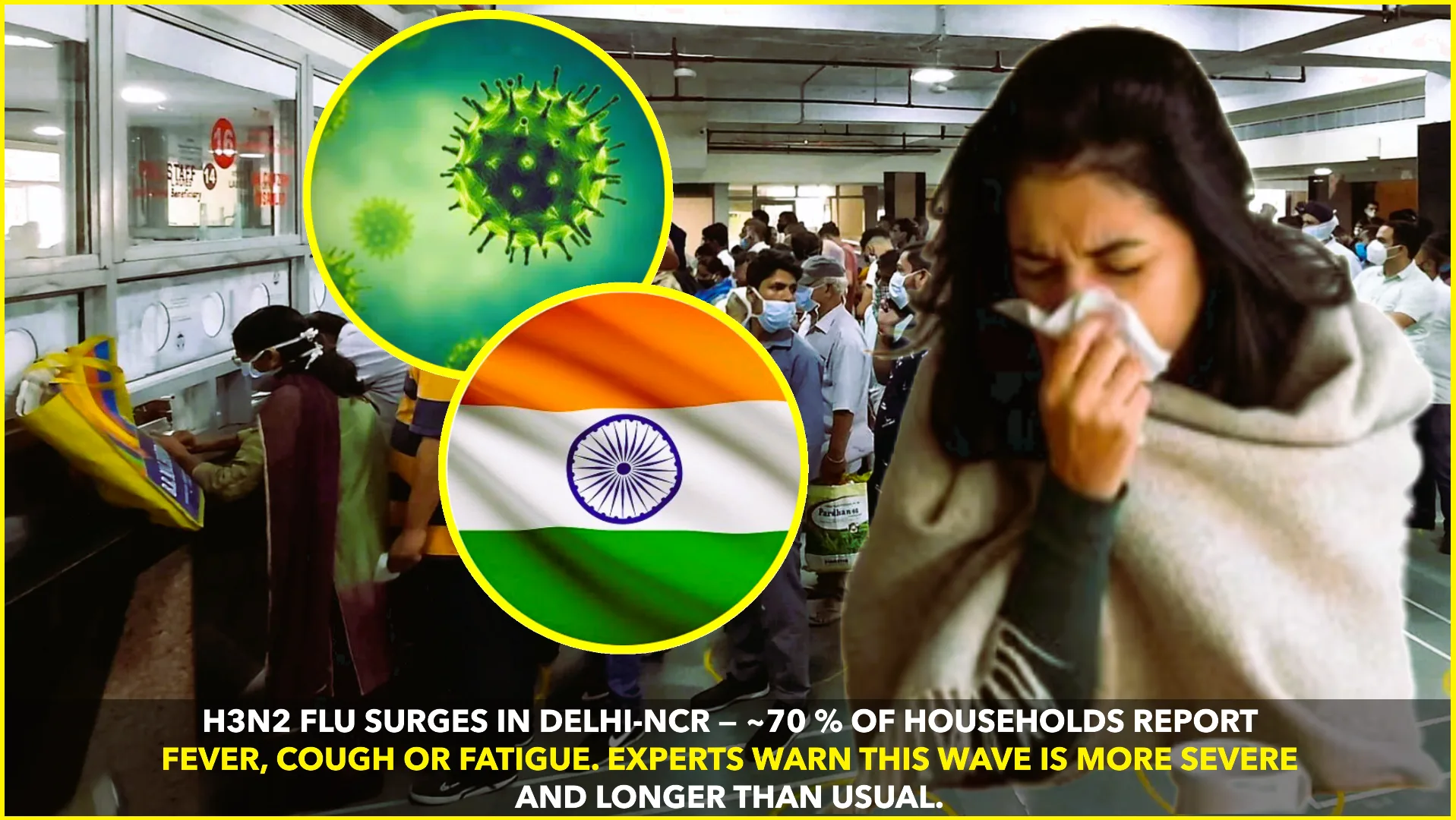Maharashtra is currently grappling with a significant outbreak of Guillain-Barré Syndrome (GBS), with 167 confirmed cases and seven fatalities reported. Among the deaths, one has been conclusively linked to GBS, while the remaining six are under investigation. The epicenter of this outbreak is Pune and its neighboring regions, where contaminated water sources are suspected to be the primary cause. In response, authorities have taken decisive action by sealing 30 private water plants and are closely monitoring the situation.
Understanding Guillain-Barré Syndrome
GBS is a rare neurological disorder in which the body’s immune system mistakenly attacks the peripheral nerves. Symptoms typically begin with weakness and tingling in the extremities, which can escalate to paralysis if not promptly addressed. While the exact cause of GBS remains elusive, it is often preceded by infections such as respiratory illnesses or gastrointestinal infections.
Investigations Point to Contaminated Water
Health Minister Prakash Abitkar, after a thorough review in Pune, indicated that the outbreak is likely linked to polluted water sources. He noted that approximately 80% of the patients hail from a specific area, particularly the merged villages within the Pune Municipal Corporation (PMC) limits. These areas lack adequate water treatment facilities, making residents vulnerable to waterborne pathogens. The PMC has since undertaken measures to address these issues, including repairing leaks, replacing damaged drainage lines, and enhancing water source monitoring.
Laboratory Findings and Ongoing Investigations
The PMC collected water samples from 30 localities along Sinhagad Road to identify potential contamination sources. Preliminary laboratory reports did not detect the presence of GBS-causing bacteria. However, the findings highlighted the need for providing treated water to these areas promptly. The water was found to be muddy, and the presence of ‘zooplankton’ indicated that mere disinfection was insufficient. This underscores the necessity for comprehensive water treatment solutions.
Government and Civic Response
In light of the outbreak, the state government has increased funding under the Mahatma Phule Jan Arogya Scheme to support GBS-related cases. The PMC has also made arrangements to ensure the availability of ventilators and essential medicines for affected patients. To prevent hospitals from overcharging, the government plans to cap treatment costs and encourages patients to seek care at empaneled hospitals. Additionally, the PMC has formed 75 teams to conduct house-to-house surveys in the Sinhagad Road area. These teams are gathering information, raising awareness about GBS, and distributing pamphlets to educate residents. Citizens are being advised to boil water before consumption and to avoid eating roadside food to mitigate the risk of infection. indianexpress.com
Public Health Advisory
Health officials are urging residents, especially those in the affected areas, to remain vigilant. Symptoms of GBS include weakness, tingling sensations, and in severe cases, paralysis. Early detection and treatment are crucial for better outcomes. Citizens are advised to maintain good hygiene practices, ensure the consumption of safe drinking water, and seek immediate medical attention if they experience any related symptoms.
Conclusion
The GBS outbreak in Maharashtra, particularly in Pune and its surrounding areas, has highlighted significant public health challenges. While the exact cause remains under investigation, the suspected link to contaminated water sources has prompted swift action from authorities. The sealing of private water plants, increased medical support, and public awareness campaigns are steps aimed at controlling the outbreak and preventing further cases. Residents are encouraged to stay informed, adhere to health advisories, and support community efforts to overcome this health crisis.










